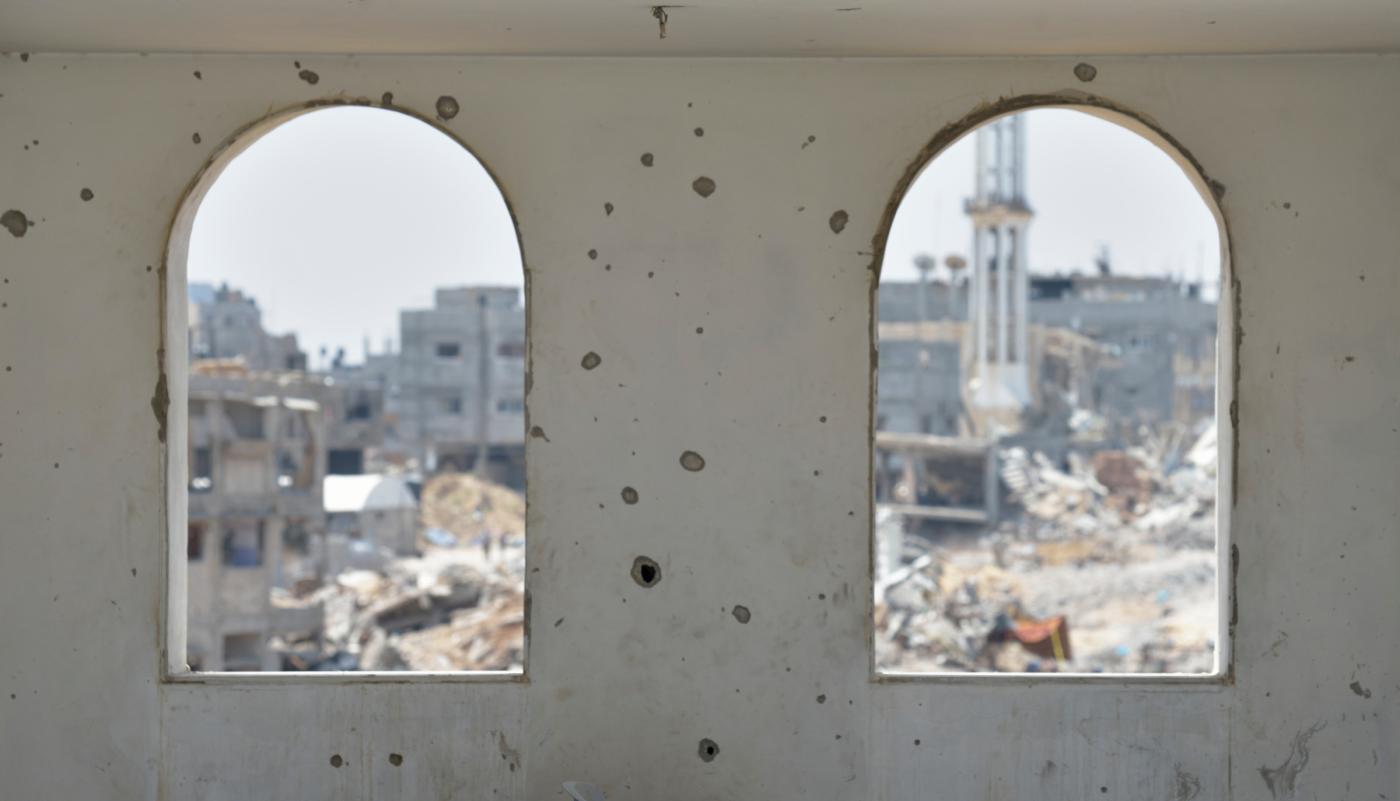The ongoing war in Gaza transcends mere geopolitical struggles—it marks a defining moment in Christian history, demanding an unwavering collective response to its heart-wrenching toll. As we navigate this crisis, let us draw inspiration from the indomitable resilience of Christianity, a faith that has withstood tempests for over two millennia.
The tumult threatening a 2000-year-old legacy compels contemplation on the adaptability of our faith and the commitment of Christians worldwide. In the poignant words of Jesus, "Blessed are the peacemakers, for they will be called children of God" (Matthew 5:9, NIV). These words resonate with the enduring peace that Christianity aspires to embody.
The genocide in Gaza beckons the global Christian community to unite beyond a distant conflict, echoing the timeless teachings of the Bible: "Let justice roll on like a river, righteousness like a never-failing stream!" (Amos 5:24, NIV). Yet, this call for unity unveils divisions within Christendom, revealing a silence incongruent with our professed values.
The Holy Land extends beyond its geographical bounds; it is a spiritual cornerstone for Christians across the globe. Emphasizing the imperative of safeguarding sacred sites, let us heed the biblical injunction: "Learn to do right; seek justice. Defend the oppressed. Take up the cause of the fatherless; plead the case of the widow" (Isaiah 1:17, NIV). Do our endeavors translate into concrete actions benefiting future generations, or do they linger as mere symbols?
The enduring suffering of Palestinian Christians, direct descendants of the earliest followers of Christ, unfolds as a protracted tragedy spanning 75 years. Witnessing their murder and the razing of their churches and institutions in Gaza impels us to question the apparent apathy pervading the global Christian community. "Speak up for those who cannot speak for themselves, for the rights of all who are destitute" (Proverbs 31:8, NIV). Does this silence not contravene biblical teachings that resoundingly denounce injustice and oppression?
Jesus' principles beckon us to embody active compassion, to vociferously decry injustice, and to stand unflinchingly in solidarity. Confronted by the dire plight of Palestinian Christians, the global Christian community must rise to showcase unwavering support. "If one part suffers, every part suffers with it; if one part is honored, every part rejoices with it" (1 Corinthians 12:26, NIV). Authentic adherence to these teachings mandates confronting injustice, even when it is uncomfortable.
The palpable silence or apathy from the global Christian community can be perceived as a betrayal of these principles. It is a time for deep reflection, for bridging the gap between faith and action. Palestinian Christians yearn for the solidarity and active support of their brethren, not solely to address the immediate crisis but to dismantle the root causes perpetuating their suffering.
The response of the Christian world provokes critical questions. While some offer prayers, advocate for justice, and engage in humanitarian efforts, a disconcerting majority remains silent, seemingly at odds with Jesus' progressive stance. It is disheartening to witness Christian leaders falling short of the professed values, risking the eclipse of their Christian duty. Additionally, there are those perilously aligned with oppressors against Palestinians, including Christians. This distortion of Christianity perpetuates harmful stereotypes against Palestinian Christians and other indigenous Christians across the Middle East. The global church must unequivocally denounce politicized theologies that dehumanize entire populations for political gains in teachings, prayers, and churches.
Occasional prayers alone may not suffice. True solidarity demands a robust response: "He has shown you, O mortal, what is good. And what does the Lord require of you? To act justly and to love mercy and to walk humbly with your God" (Micah 6:8, NIV). It necessitates boldly challenging governments, politicians, arms industries, media entities, and groups perpetuating injustice, speaking out against oppression, and actively working toward a just resolution.
The Christian world must scrutinize its collective conscience and confront whether silence and political correctness eclipse its responsibility to address injustice. This is a resounding call to action, urging the Christian world to bridge the gap between faith and practice and stand resolutely with the oppressed, even if it means challenging those in power. By doing so, the Christian world can authentically embody the revolutionary stance of Jesus, fervently advocating for justice, love, and compassion for all.
Indeed, the global Christian community must surpass introspection and propel into tangible external actions to manifest genuine solidarity. The reluctance or hesitancy of the Christian world to address systemic issues perpetuating the marginalization of Palestinian Christians raises valid concerns about the alignment between faith and action. It necessitates a critical examination of whether there is a profound disconnect between the professed values of Christianity and the actual response to the Gaza war.
To safeguard the sacred roots of Christianity in Gaza and the broader Holy Land, the global Christian community must transcend symbolic gestures and embrace concrete actions. The time has come to shatter the silence, interrogate the status quo, and ardently champion the rights and safety of all, with a profound focus on Palestinian Christians. Together, we can forge a difference, ensuring that the legacy of Christianity remains an unwavering source of justice, love, salvation, and compassion for generations to come. If nothing is done, we stand on the precipice of witnessing the end of Christianity, not just in Gaza, but across the entire Holy Land, marking an unprecedented chapter in history.













